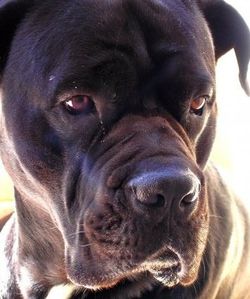Pet Poisons in Your Garden and in your House
Happy National Poison Prevention Week!
As pet parents honor this week by assessing animal toxins in their homes, the ASPCA wants to remind folks to take care when planning (or planting) their springtime gardens, too. Whether you’re blessed with balmy weather already or are patiently awaiting the first day of spring (March 20, holla!),
***please be mindful of the season’s toxic obstacles for our furry friends.
Last year, the ASPCA’s Animal Poison Control Center fielded tens of thousands of calls related to pets who accidentally ingested or came in contact with garden-related products, including insecticides, weed killers and pet-toxic plants. Don’t let your furry beloved become a victim of your green thumb—read our expert tips below.
- When designing and planting your green space, keep in mind that many popular outdoor plants—including sago palm, rhododendron and azalea—are toxic to cats and dogs, and may cause liver failure or heart problems.
- When walking your dog, take care to keep Fido off the grass and away from toxic lawn and garden products. Cocoa mulch—a byproduct of chocolate—is especially problematic because it attracts dogs with its sweet smell and can cause them gastrointestinal distress or more serious neurological problems if consumed in large quantities.
- Always store pesticides in inaccessible areas. The most dangerous forms of pesticides include snail bait with metaldehyde, fly bait with methomyl, insecticides with the ingredients disyston or disulfoton, mole or gopher bait with zinc phosphide, and most forms of rat poisons.
- Unattended garden tools may seem like no big deal, but rakes, tillers, hoes and trowels can be hazardous to pets and cause trauma to paws, noses or other parts of a curious pet's body. Please leave all unused tools in a safe area, not haphazardly scattered on the ground.
For a complete list of tips, check out our online guide to Pet-Safe Gardening. Now, get thee to a nursery and have a safe spring season!
Thanks to ASPCA
Also from our Vegan Page :
For CATS ♥ : Few Foods to Avoid Feeding our companions and few TIPS:What Is "Normal" for a Cat?
http://www.facebook.com/pages/Isabellas-Vegan-page/83552172515#!/note.php?note_id=10150092156413386

And i found these good articles about Toxic Substances
here ::
http://www.judyshealthcafe.com/articles/substances.html
http://vetmedicine.about.com/od/toxicology/Toxicology_Poisons_.htm
http://www.myfoxtampabay.com/dpp/good_day/pets/aspca-top-10-pet-poisons-of-2010-031411
http://www.petpoisonhelpline.com/pet-poisons/poison-prevention-week-2011/
or US : Pet POISON HELPLINE : http://www.petpoisonhelpline.com/
